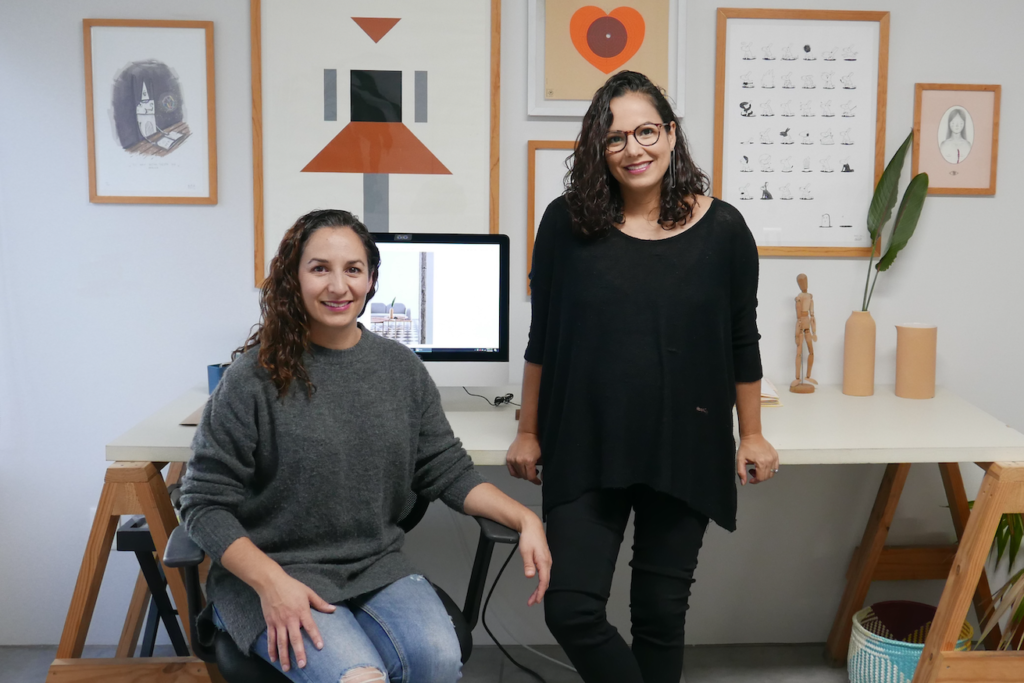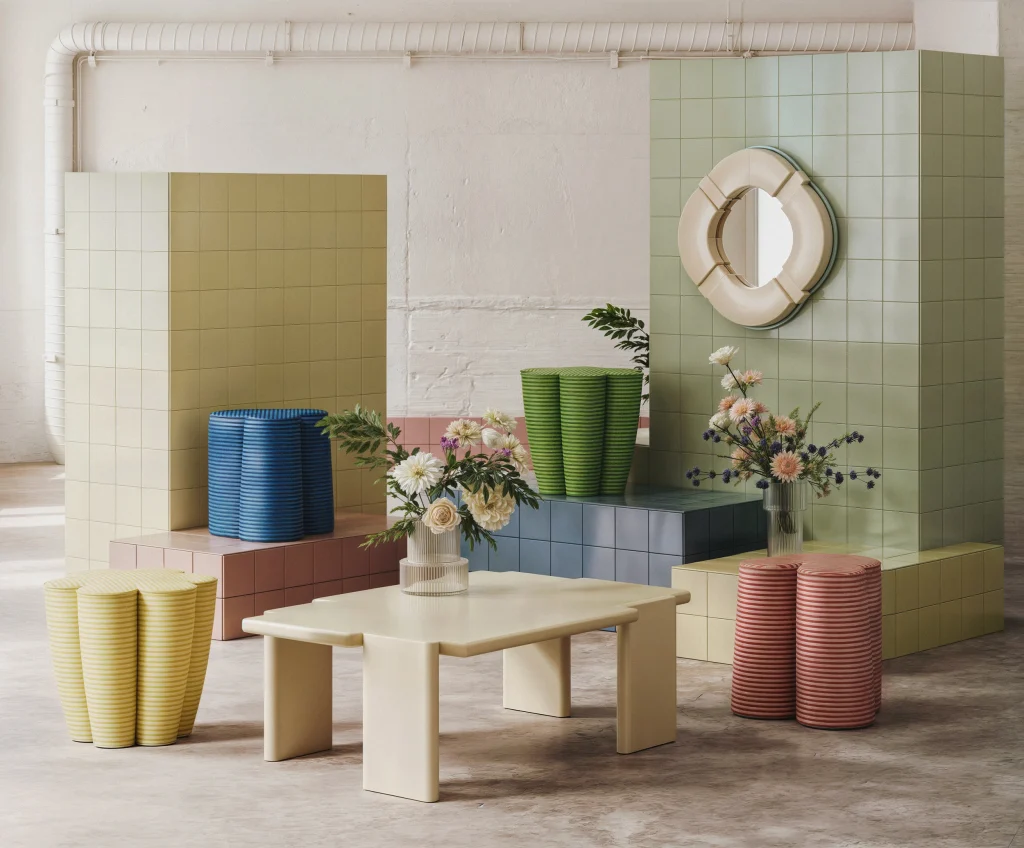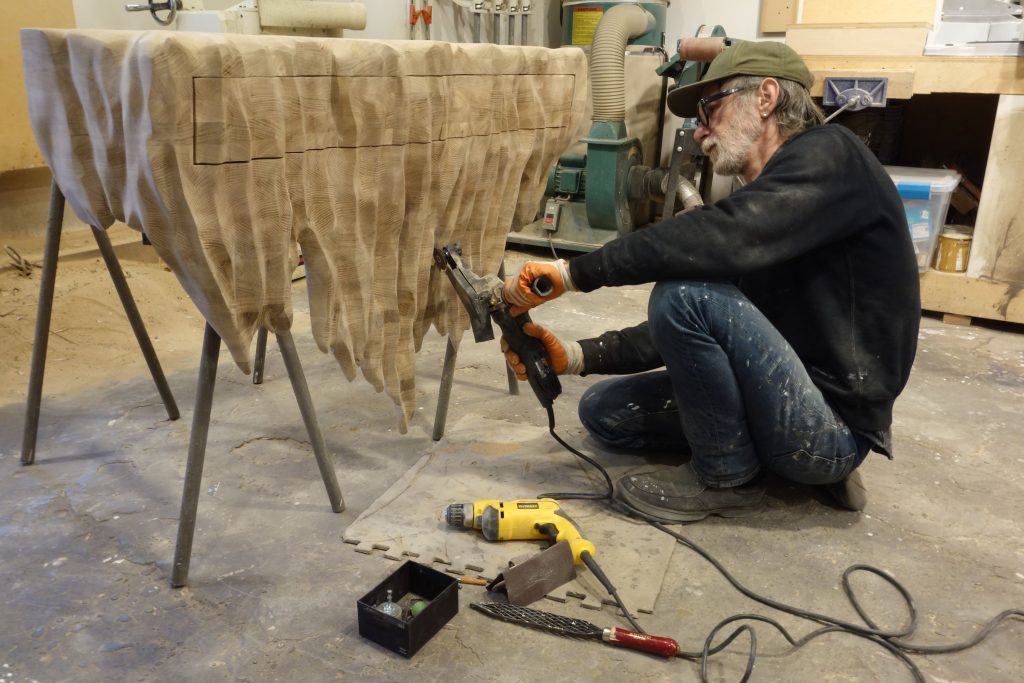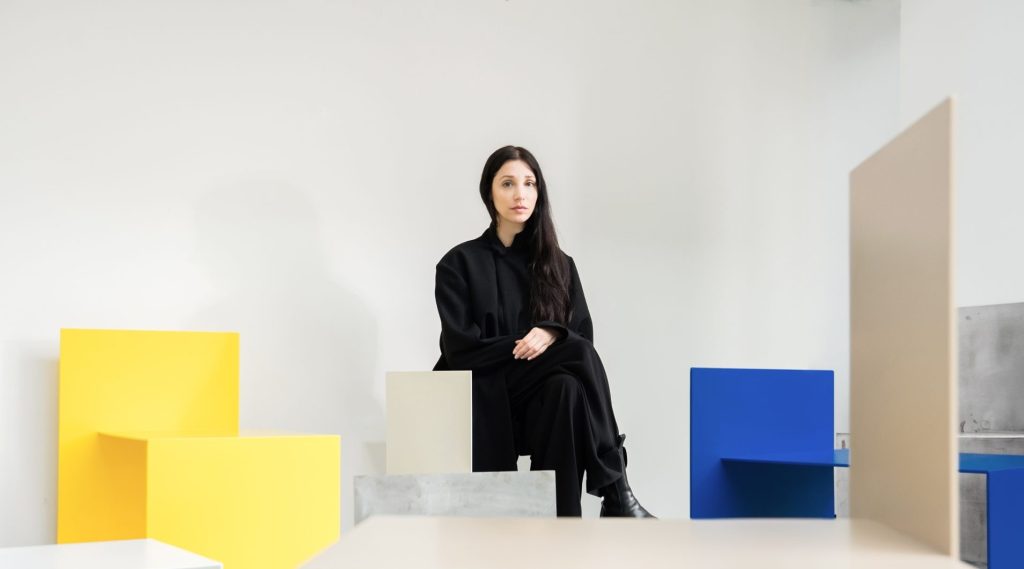
Tributo: Working with Dialogues of Heritage, Continuity, & Sustainability
“We have been influenced by an understanding [and] respect for time within all processes to achieve the desired quality of results and the importance of [a] knowledge of the past and inheritance to have a clear vision on the direction towards the future.”
– Laura & Gabriela Noriega of Tributo
View Tributo’s showroom, including “Your Skin” Chair
Design studio Tributo, founded in 2013 by Laura and Gabriela Noriega in Jalisco, Mexico, emphasises dialogue, sustainability, and collaborative design in their multidisciplinary practice. The studio works with artisan communities across Mexico to promote social, economic, and cultural development through design. It is through this collaborative approach that Tributo is able to place focus on the continuity of tradition, both in regard to technique and material. Traditional craftsmanship – from wood- and metalwork to ceramics to embroidery to basketery – is at the centre of their design philosophy. These long-held, artisanal techniques are championed as a means to preserve the skills, voices, and stories present in the diverse, Mexican contemporary design scene.
As a studio, Tributo has also been working towards having an entirely sustainable production, speaking volumes of their ethical and responsible practice. As mentioned below, Laura and Gabriela champion “low-scale production, where the balance between resources and transformation is generated at a rate more compatible with natural cycles in the production of raw materials”. As such, pieces like “Siesta” Cushion, “Standard” Chair, and “Nido” Plant Pot use locally available raw materials such as agave fiber, rosewood, and chuspata natural fiber in their creation, while others, including “Gota” Lamp and “Your Skin” Chair, make use of reused or recycled materials to develop their forms. From this material and process-focused approach, Tributo works alongside artisans to honour the heritage of their practices while also working towards the development of more sustainable production processes.
How has your practice and understanding of Mexican design been influenced by and/or shaped through your work with local artisan communities?
These collaborations have allowed us to know in a deeper way our country, the social context, the linking of objects with culture, and the importance of the artisanal sector in the economic development of the country. From collaborative practice, we have generated environments for growth and mutual learning where we have been able to positively influence different parts of the processes within the workshops by sharing methodologies and design tools, while [also] being a communicator bridge to build networks of constant and permanent benefits.
On the other hand, artisanal productions represent a sustainable connection that links human relations with their geographic context, creating more harmonious results between matter and production processes on a more sustainable scale.
We have been influenced by an understanding [and] respect for time within all processes to achieve the desired quality of results and the importance of [a] knowledge of the past and inheritance to have a clear vision on the direction towards the future.
Social, cultural, and ecological sustainability play a large part in your work – why is this such an important aspect of Tributo as a studio?
Social, cultural, and ecological sustainability is part of our objectives for a sense of responsibility, congruence, honesty, and ethics in the practice of our discipline. Design is a tool of change, and, in recent years, this has been used [to generate] positive and other very negative results.
The designer has a great responsibility in the decisions that are made with the innovations that we are generating as humanity. In our hands, processes that deplete resources, that are not sustainable, [and] that cause social problems have been developed and decided. We trust that with design, fundamental problems of our society can be solved through creative and innovative processes.
Our operation as a project has resulted in a lot of social benefits for different groups. For example, artisans have developed their capabilities and Tributo helps to link them with new and value-added markets. With our practice, demand and value has been generated for the new generations of young people who will see traditional and artisanal processes as a sustainable way of life that also contributes to the conservation and respect for tradition in order to continue promoting culture. [We champion] low-scale production, where the balance between resources and transformation is generated at a rate more compatible with natural cycles in the production of raw materials, and aesthetically, the generation of timeless and durable objects that pass with respect to generation in generation.
This social responsibility is printed in our DNA, therefore, apart from the cultural and social impacts, it was necessary to include environmental aspects in the operations of our initiative. As part of Tributo’s socio-environmental policies, we want to pursue carbon neutrality as a more natural step in our philosophy.


Can you discuss the ways in which Tributo works towards sustainable production?
We are working on the design of our environmental policies which we started in 2017 with the calculation of the carbon footprint of the production of three objects from our collection: Tiripiti Lamps, Oro Caco Cups, and PiedraPouf. With our commitments, [the goal] is to add the entire collection to this extent. The strategy includes the measurement of emissions, [as well as a] strategy for the reduction and compensation of those emissions. This year, we will make the first purchase of unavoidable emissions offsets. The approach includes consideration of all relevant direct and indirect emissions from the acquisition of materials to delivery to final customers and the disposal of waste. This requires close collaboration with suppliers, artisans, distributors, and retailers.
The first group of interventions focuses on increasing the efficiency of activities to reduce energy consumption, lighting, and – particularly – in logistics and material shipping policies. The second approach is the design and, if necessary, the modification of the materials used for the products and packaging to favor the use of certified / recycled or low carbon materials / services. The third group is related to the installation of equipment to produce renewable energy at the headquarters of Tributo.
The initial activities already implemented consist of the redesign and change of packaging material to reduce the use of plastic; the use of natural products within our processes (beeswax, natural pigments, natural fibers, etc.) [and] in waterproofing processes (to replace industrial products); and the planning of shipments and deliveries to avoid trips with small loads that generate high emissions per unit.
This process of learning by doing strengthens our collaboration and encourages climate action and sustainable development. The artisans have so far participated in the evaluation of the emissions in each workshop, which has awakened in them ideas for their own actions and possible options to reduce impacts.
What influence do the notions of “tradition” and “authenticity” have on your artistic practice and design process?
The study of traditions has been a fundamental part for the conception of the brand, it represents one of the main inspirations of our creative processes and the objective of our work. Traditional processes, techniques, and materials are the origin [and] base of the projects. Hence, we start with the objective of generating an honest interpretation that can represent and reflect with authenticity this admiration towards the legacy of the past in timeless objects.
How do you combine the modern needs of the contemporary design market with craft tradition? For example, with the Oaxacan textile in Laura Noriega’s “Your Skin” Chair.
Ten years ago, we started collaborations with craft workshops. Initially, it was cautious and adapting to the times and accessible materials. Over the years, the collaboration built a trust and a method that allowed an openness to experiment. Today, both within our creative processes and in the workshops, the ability to react to change is increasingly positive, open, and fast. This rhythm has developed in a very natural and instinctive way to adapt the artisanal to the contemporary.
In the case of “Your Skin” Chair, which was designed in Japan in 2012 during a research stay, the seat was developed with a flexible format that allowed change. The seat works as the “skin” of the wooden structure and it is with it that we have been able to explore different techniques, materials, [and] colors to adapt the same product to the aesthetic needs and identity of each project and also allowed us to communicate and put in a different context the textile diversity of the country.


Bio
Founded by Laura and Gabriela Noriega in Jalisco, Mexico in 2013, tributo is a multidisciplinary design company merging the work of contemporary designers and traditional producers through the appreciation of cultural heritage and local artisanship.
In tributo we aim to promote design as a strategic tool to promote social, economic and cultural development by working with artisan communities in Mexico. With our practice we generate a dialogue through design processes to encourage creativity and share tools that help generate diversification, improve the quality of workshops and production and promote generational continuity.
Our main value is handmade and the influence of our heritage in the history of each product bringing together a selection of utilitarian objects for home decoration, accessories and furniture produced by the best Artisan Masters of Mexico.
The tributo collection is a cartography of cultural diversity, craft techniques and materials, merging the creative vision of designers and craftsmen from the states of Jalisco, Michoacán, State of Mexico, Oaxaca, Hidalgo, Veracruz and Nayarit from more than fifteen different techniques such as hammered copper, lava stone and obsidian carving, blown glass, cabinetmakers, basketry, pedal and waist loom, knife makers, pottery, woodcarving among others.
As part of tributo’s socio-environmental responsibility two years ago we started to develop our environmental policies and practices. We began measuring our carbon emissions and to design our strategy to neutralize them with the aim to reduce our environmental impact.

















Responses